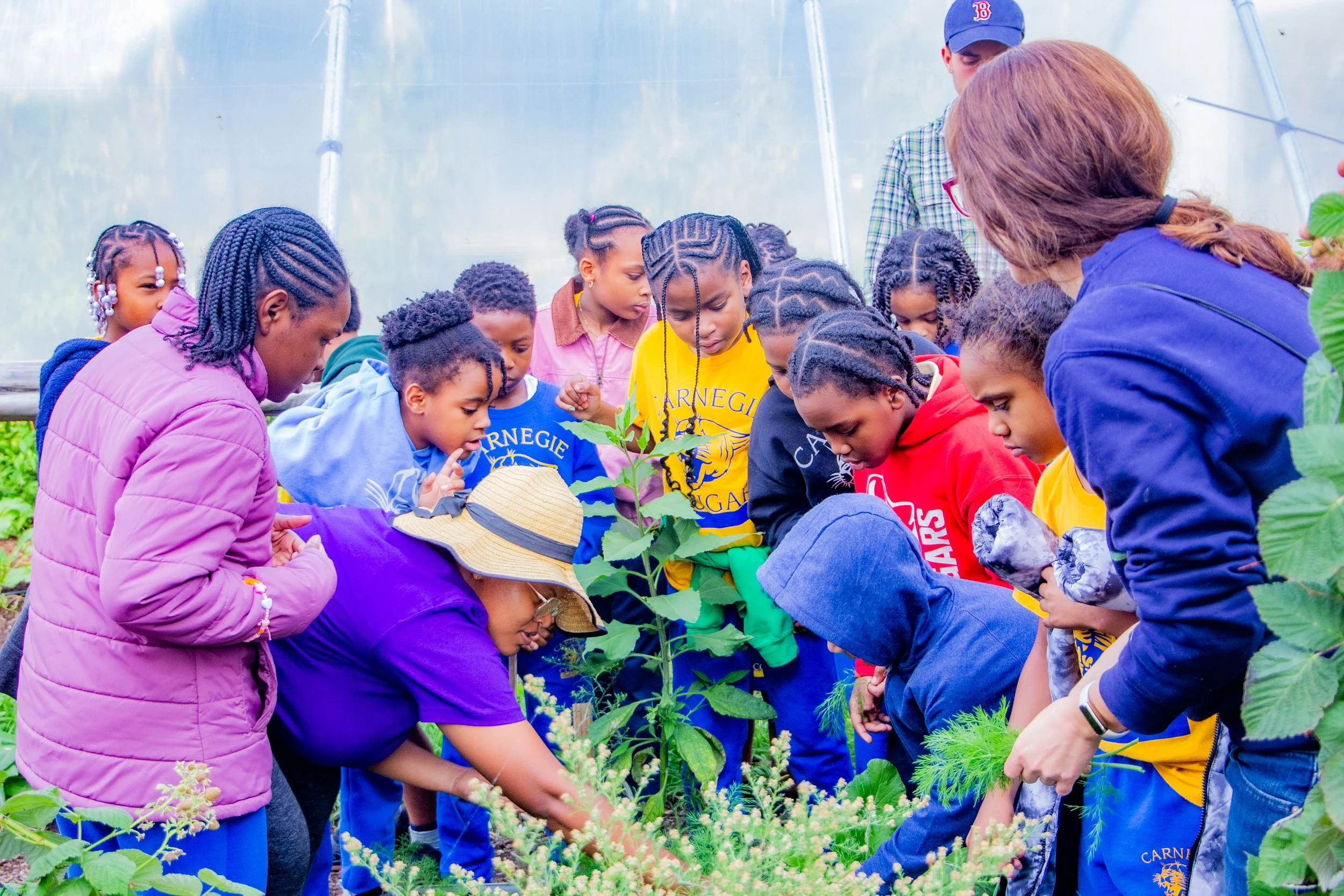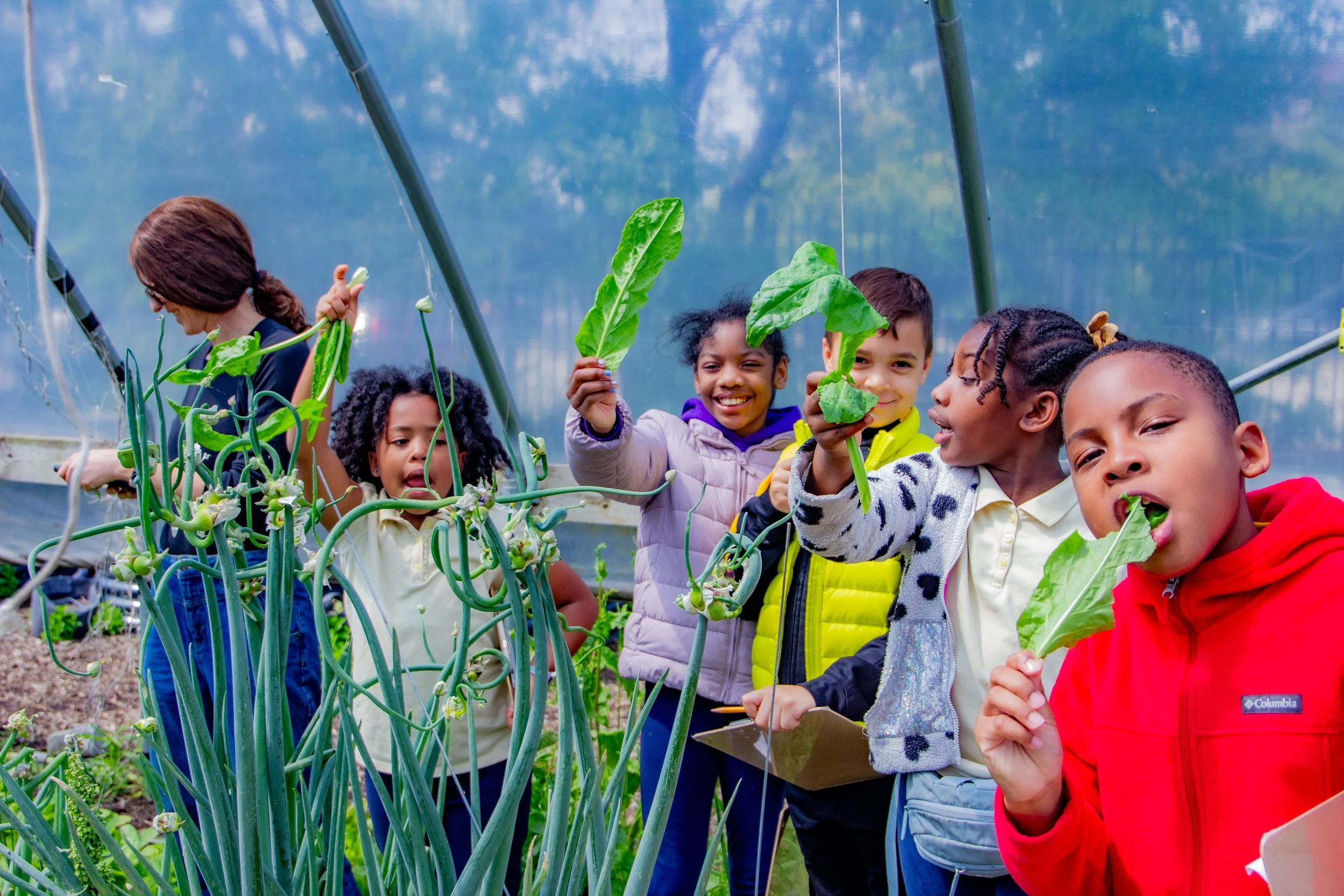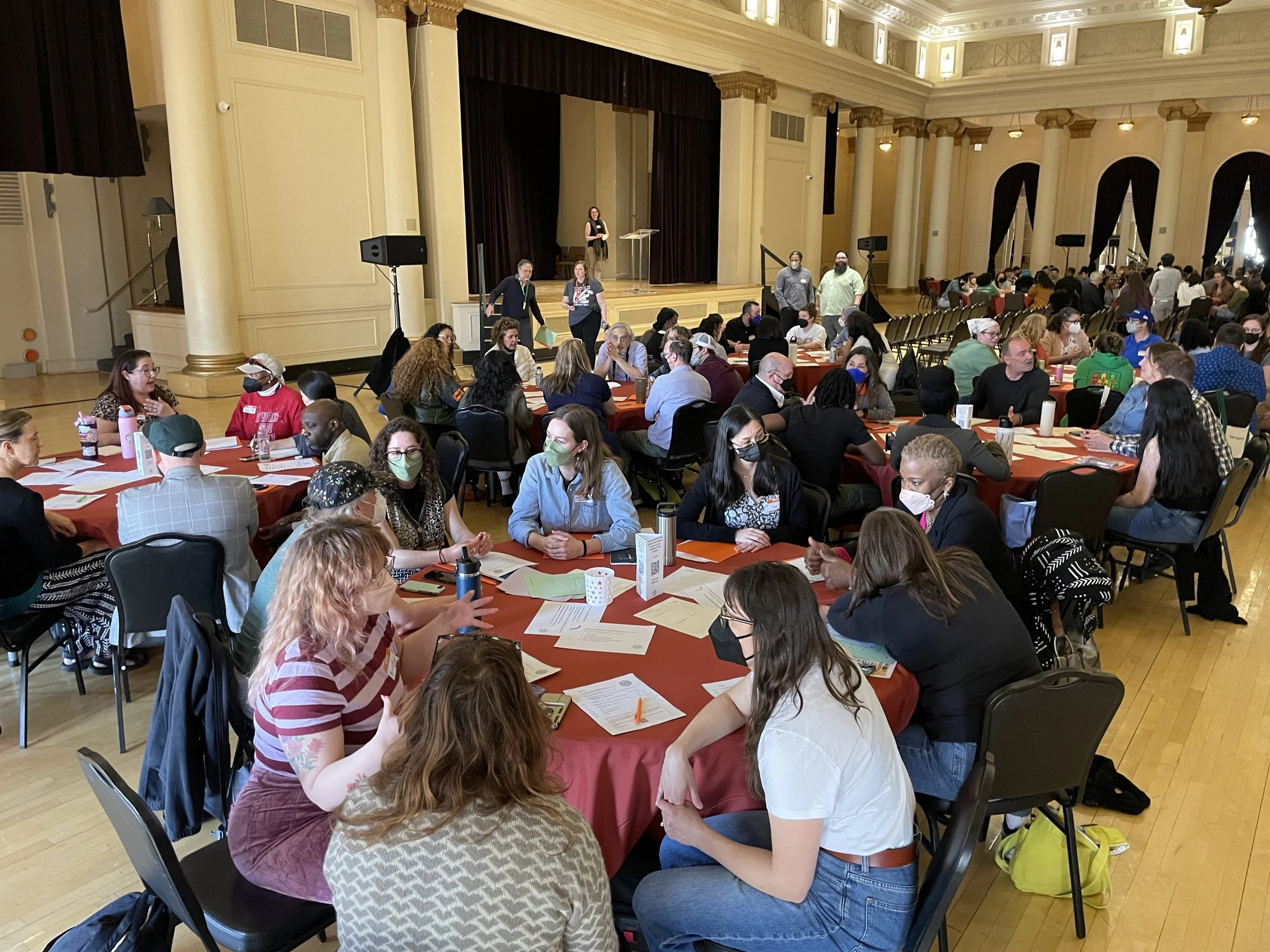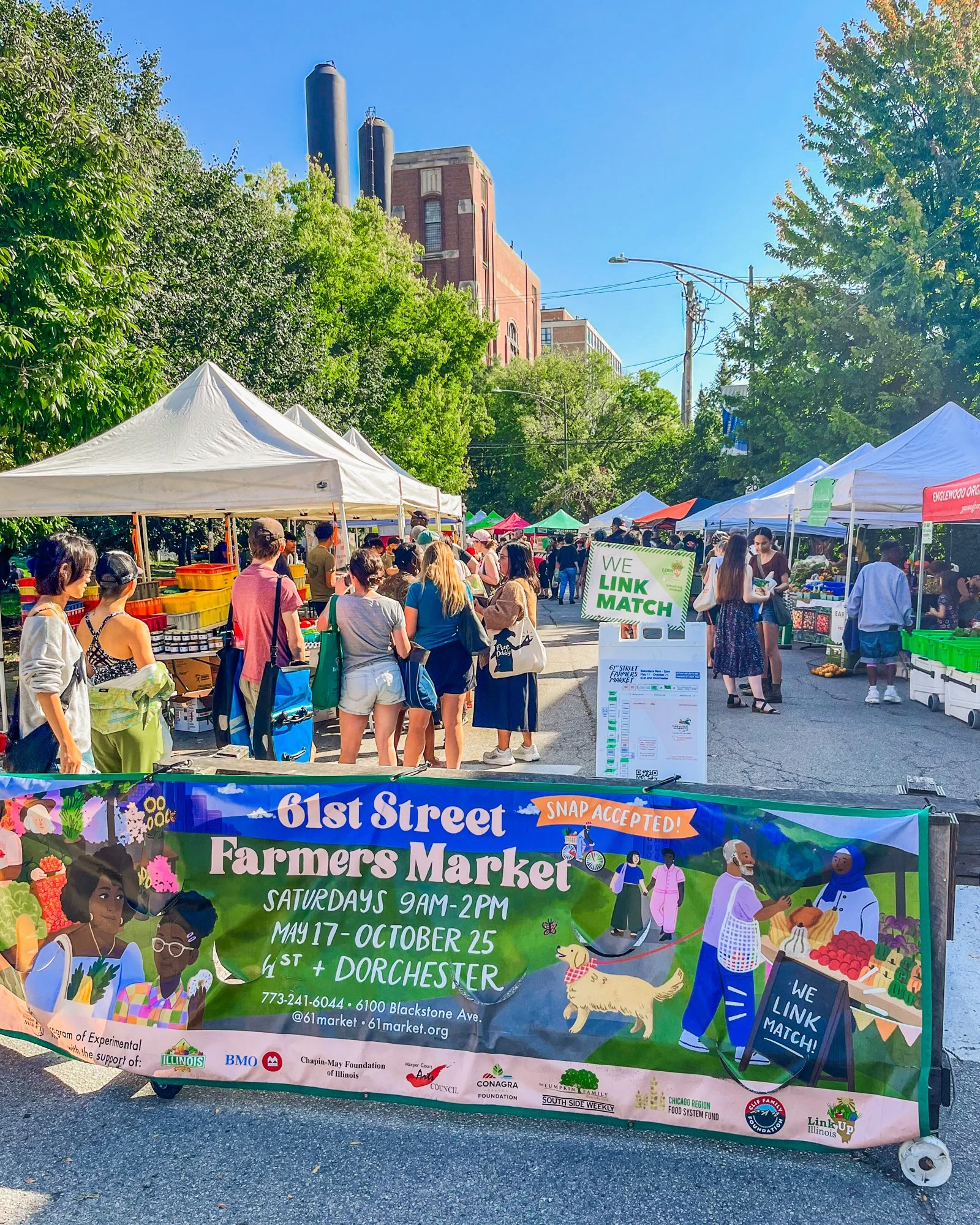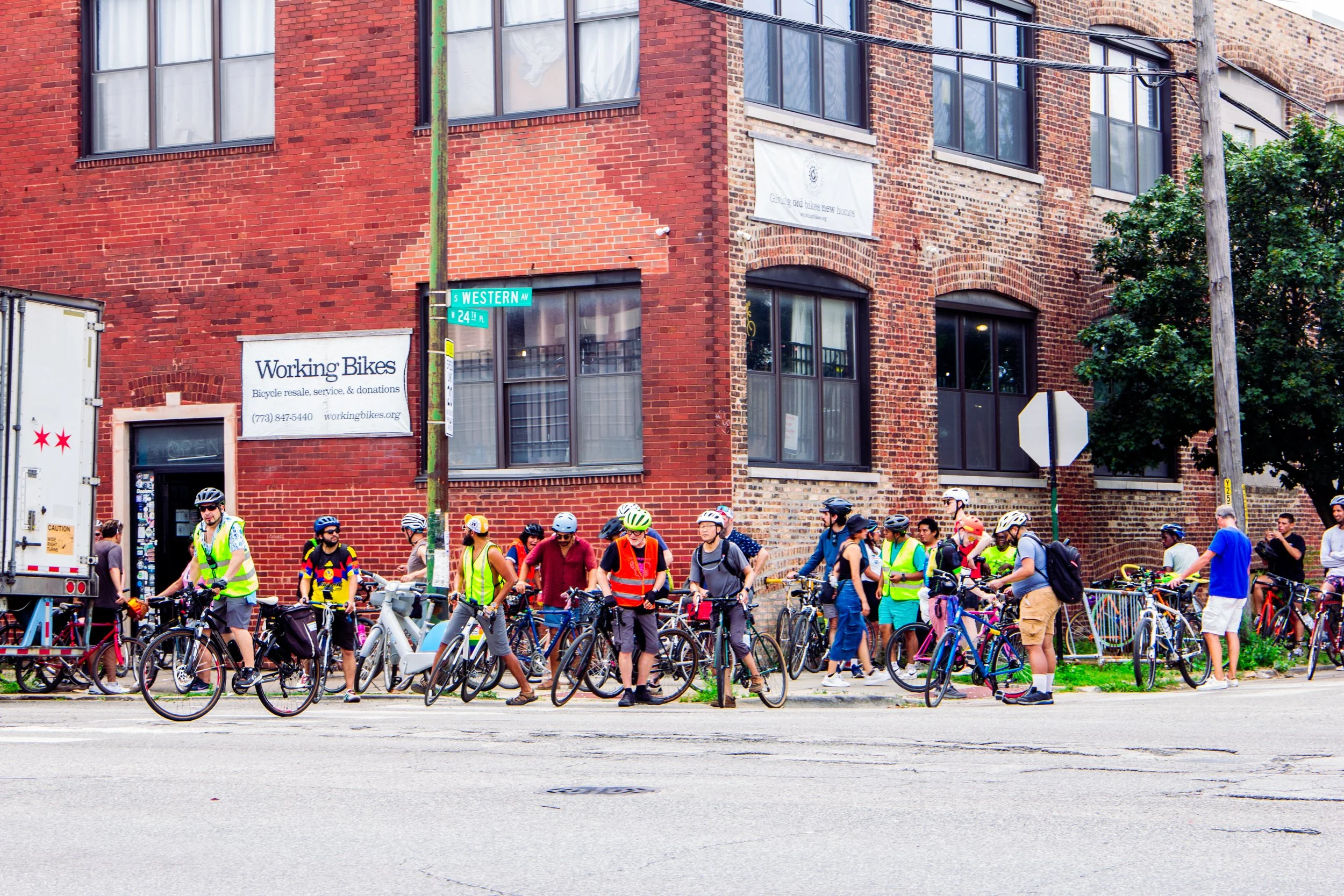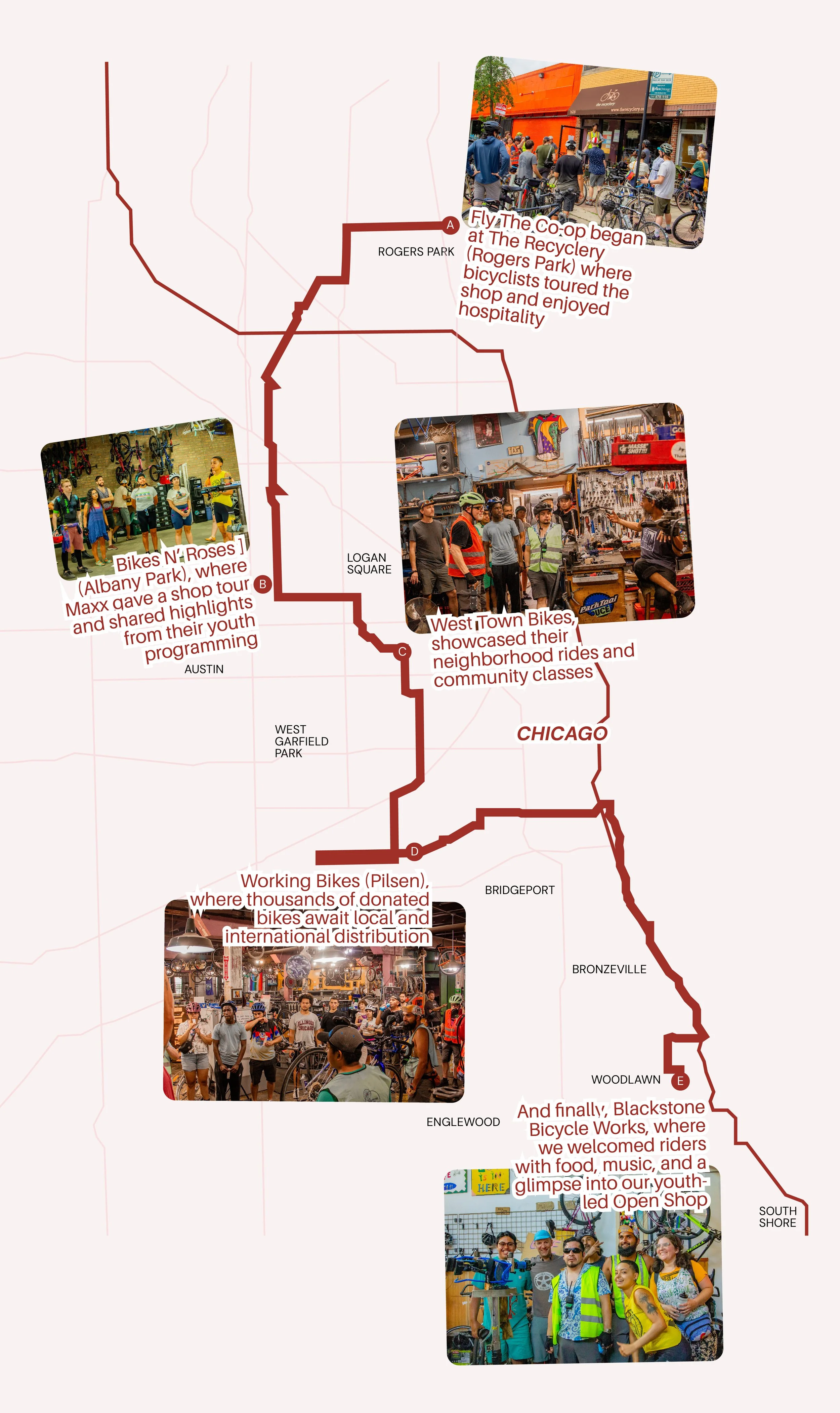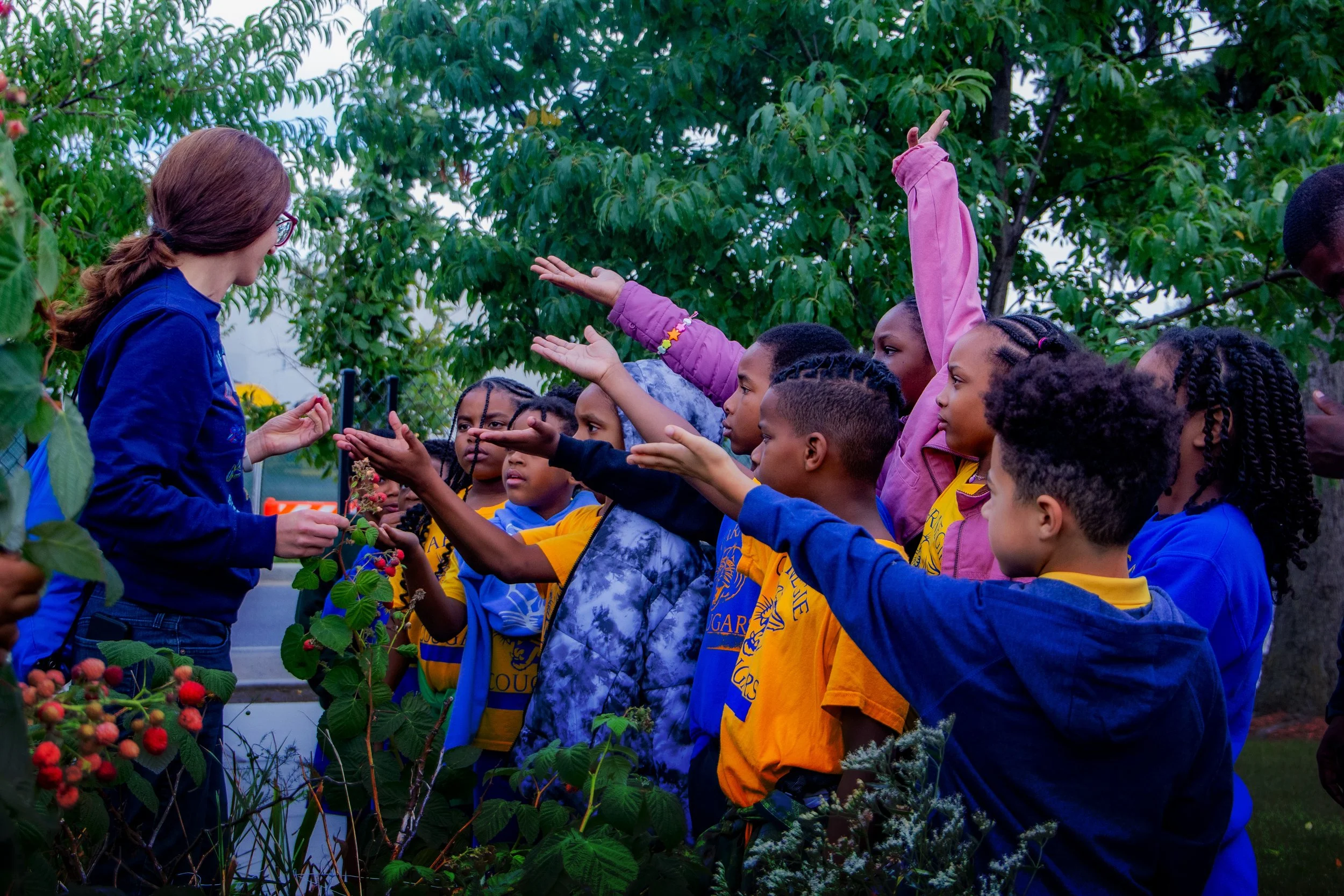
Our 2025 Impact
Experimental Station’s mission is to build independent cultural infrastructure by providing essential resources that respond to local needs. Our programs address food insecurity, strengthen Illinois’ food system, provide youth with enriching educational opportunities, foster creativity and the arts, and enhance community wellbeing.
Note from the Executive Director
Dear friend,
As a cultural organization, Experimental Station poses a fundamental question: What does the cultural project look like in a time when our most urgent problems are not only neglected, but actively denied? When division and discord are stoked instead of soothed? When welcoming a stranger is seen not as a strength, but as a liability?
We reframe the cultural project. Through our programs and place-making initiatives, Experimental Station works to create tangible, positive experiences of change. Whether it’s offering children the exhilarating freedom of riding a bike, giving community members greater confidence in maintaining their own bicycle, helping families access fresh, healthy food and improve their wellbeing, or cultivating spaces where people feel a deep sense of connection and belonging—these are more than just individual successes. They are acts of cultural transformation, contributing to a future where we happily choose a bicycle over a car, an apple over a bag of chips, the farmers market over a supermarket, solidarity over division, compassion over fear.
Looking back at the past year, the changes we have helped bring about—many of which are reflected in these stories—have renewed our energy and deepened our commitment to the work ahead. From further expanding food and bicycle education for children and adults in our community, to creating new opportunities to collaborate with and support the work of community members, to advocating for safe local bicycle infrastructure, to making healthy foods affordable for more Illinoisans and leading a statewide food system planning process for Illinois, Experimental Station is poised for a bold leap forward in the coming year.
These are urgent times. Yet, together we can create the kind of place and future that we want for ourselves, our children, and our community. We hope that you are inspired by these stories—and that you will consider supporting our work. Your contribution, no matter the size, helps us continue to build a more just, connected, and nourishing world—one bike ride, one market, one neighbor at a time.
Sincerely,
Connie Spreen
Our Impact by number
Bringing fresh, healthy foods to Woodlawn and surrounding neighborhoods year-round while reducing barriers to access and offering hands-on food education.
61st Street Farmers Market
local farmers and food artisans supported
35+
2,500+
weekly customers served
local children and adults learned to grow and prepare healthy food
600+
SNAP households accessed affordable, healthy foods
300+
Empowering youth through free in-school and after-school bike education, building problem-solving and leadership skills.
Blackstone Bicycle Works
500+
South Side youth learned bike mechanic skills
400+
community members received free repair support through Open Shop
95
free bikes given to youth in the community
Making fresh foods more affordable with Link Match by doubling the value of Link (SNAP) purchases statewide.
Link Up Illinois
markets and farm stands offered Link Match
128
28
grocers and co-ops offered Link Match
in fruits and vegetables provided year to date to Link users
$1.53+ Million
of Link Match users surveyed stated that their health has gotten better because of Link Match
75%
A community-informed process that aims to build a diverse, equity-focused, sustainable, and resilient food system in Illinois.
Illinois Food System Roadmap
319
stakeholders provided their insights and input
1
Phase I report completed identifying core opportunities for an Illinois foodshed
through stories
Our impact
A Week in the Life of the 61st Street Farmers Market Team
61ST STREET FARMERS MARKET
The 61st Street Farmers Market is about more than fresh produce—it’s about building a healthy food culture in Woodlawn and beyond. But what does that look like in practice?
To answer that, let’s turn to a week in mid-May 2025. Senior Program Manager Emily Cross and her team—Program Assistant Joy Joshua, Market Assistant Adam Stern, and Head Gardener Kelly Jones—were busy bringing food education to life with students at Carnegie Elementary School and maintaining the hoop house garden at Jackson Park Terrace—all while preparing for the first Saturday market of the outdoor season.
Tuesday, May 13:
At Jackson Park Terrace, Kelly and Adam weed, plant, and water at the hoop house, as well as harvest fresh produce for today’s after-school cooking class with Chef Fea. Meanwhile, Emily and Joy prepare ingredients, snacks, and stations with cutting boards, knives, and aprons in the Experimental Station’s kitchen. Soon, the stations are filled with a dozen 4th graders, ready to jump into today’s lesson.
After a reminder about kitchen safety and etiquette, Chef Fea guides students in preparing a spiral zucchini noodle salad. Each student takes on a task: spiralizing zucchini, cucumber, and apple; slicing sweet peppers; and picking herbs for the dressing. Chef Fea explains the nutritional benefits of each ingredient as they work. The kitchen buzzes with excitement as youth work together and discover new flavor combinations.
Wednesday, May 14:
After class preparations at the hoop house, Emily and Joy meet Ms. Davis’s 3rd-grade class, leading the students on a walk to the hoop house for their hands-on Gardening Class. Emily asks if they remember the garden rules and which vegetables they’ve tried before. All race to raise their hands.
The twelve students split into groups: Kelly guides the gherkin planting and watering, Joy oversees the sunflower planting, and Emily leads the basil transplanting inside the hoop house. Excitement peaks when they discover a worm and begin searching for more. The class wraps up with a harvest—strawberries and sorrel—a highlight for students and the team.
Thursday, May 15:
The team kicks off a full day of youth education with another Gardening Class at the hoop house, this time with Ms. Johnson’s large class of 30 3rd-grade students. In the early afternoon, Emily and Joy head back to Carnegie for a Healthy Eating class with Ms. King’s 2nd-grade class. Through interactive lessons, 23 students explore the importance of fruits and vegetables.
The day concludes in Experimental Station’s kitchen with another 4th-grade After-School Cooking Class. Chef Fea guides students through the preparation of another colorful and delicious salad, this time with homemade strawberry balsamic.
Friday, May 16:
Friday is crunch time for Market preparation. First, Emily and the team send out updates to customers about vendors and upcoming activities. Later, she confirms volunteers for tomorrow’s Market. Meanwhile, Adam measures and labels vendor spaces and posts “No Parking” signs along 61st Street and Blackstone Avenue.
Saturday, May 17:
Opening day arrives! Vendors set up along 61st Street and Blackstone Avenue at dawn, with help from Chicago Cares volunteers. By 9 a.m., the Market is already bustling—some visitors grab coffee from Build or Kikwetu, others pick up their weekly produce. While strolling, customers connect with neighbors, friends, and farmers.
Throughout the crowd, Emily and her team check in with vendors, troubleshoot, and ensure the market activities—such as Chef Demo, Market School, and Sprout Station—run smoothly. Market staff are working the Link Match info tent to ensure that Link (SNAP) customers can shop at the Market and are provided with Link Match.
As the day ends, the team packs up tents and equipment, already preparing for next week. For them, it’s not just about running a market—it’s about teaching children, expanding food access, and creating a welcoming space for the South Side community to gather, learn, and grow.
“This is why I do what I do for the kids. To see them light up, try something new, and connect with how their food grows.
—EMILY CROSS, SENIOR PROGRAM MANAGER
Growing up in Woodlawn, Chantrel Lee found more than a bike at Blackstone Bicycle Works (BBW)—she found a safe haven.
From 2005 to 2009, Chantrel participated in BBW’s youth program. “It [BBW] became a place where we were welcomed,” she recalls. “We learned to fix bikes, earned our own, and had a place just to be ourselves.”
Now a Resource Coordinator and Victim Advocate with Project H.O.O.D., Chantrel still carries the values she learned at BBW: kindness, responsibility, and a commitment to showing up for her community. “The adults here met us where we were. That kindness stuck with me, and I bring it into my work today.”
Fifteen years later, her son Dre unknowingly followed in her footsteps by joining BBW’s Spring Break Camp in 2024. After wearing out yet another bike, Dre walked into BBW to fix his chain and never looked back. “He’s been obsessed ever since,” Chantrel says with a smile. “He fixes bikes for his friends and brings them to the shop, just like I used to.”
Dre’s passion for tools, wheels, and hands-on learning found the perfect home at BBW. “This is the first extracurricular he’s truly excited about,” Chantrel adds. “It’s helping him grow, and I don’t have to spend a dollar.”
From one generation to the next, BBW continues to offer youth a space to learn, connect, and thrive.
“Every kid needs a bike, and a place like this.”
—Chantrel Lee
From Mother to Son: Chantrel and Dre Lee’s Journey at Blackstone Bicycle Works
-

Link Up Illinois Broadens Outreach to Strengthen Food Access
Link Up Illinois has seen a 50% increase in SNAP customers at partner locations statewide. In August alone, more than 25,000 SNAP users per week received Link Match and brought home over $275,000 of fresh fruits and vegetables.
Link Up Illinois’ Farm Direct Program Manager, Kate Gurke, sees the impact of this awareness-raising effort. “Every day, we are setting SNAP customers on a path to a Link Match program. As SNAP users anticipate possible benefit cuts from the One Big “Beautiful” Bill Act, it is more important than ever that we are making these connections.”
-
Illinois Food System Roadmap Task Force: Getting What You Wished For
Despite being one of the nation’s agricultural powerhouses, Illinois grows little food, importing most of our food from California and other states and countries. In fact, less than 5% of the food we actually eat is produced here, making Illinois severely food insecure.
When the Illinois Department of Human Services suggested last November that Experimental Station create that long-needed plan, we could almost hear the adage “be careful what you wish for.” But, without hesitation, we said ‘yes!’
Food Access in Action: A Market Customer’s Story
As a single mother, Itzel needed support to care for herself and her child, so she recently applied for Link (SNAP) to help stretch her food budget. When she learned that the 61st Street Farmers Market accepts Link and matches Link purchases, she was intrigued.
Since November 2024, Itzel and her son, Emiliano, have been shopping at the Market.
“As a single mother, the Link Match program helped so much because I didn’t feel pressure to figure out what I can afford. I can still get the meals that I want without compromising my health,” said Itzel.
Itzel appreciates that Link Match allows her to support local businesses while buying higher-quality ingredients than those at the supermarket.
“I definitely am eating more vegetables. The cherry tomatoes–I don’t even need to put ranch on them! They are so good. I’m addicted to the melons too. It made me feel relieved that I didn’t need to cut my budget for myself and my family to eat healthy.”
Food isn’t the only reason Itzel and her son visit the Market. They also enjoy the community and the connections they’ve built there.
“He loves the Market!” said Itzel.
“We love the activities! They are very family-oriented. Emiliano loves to color at the kids’ station. One time, there was an organization [Chicago Grows Food] helping people grow plants, and she helped me a lot. There’s so much you can do with herbs!”
The story of Itzel and her son reflects what the 61st Street Farmers Market strives for—supporting learning, affordability, and the everyday joy of eating well.
Link Match Fills the Gap in Food-insecure Neighborhoods
Link Up Illinois’ Link Match is now available at 28 stores across 20 neighborhoods in Illinois—including some of Chicago’s most food-insecure neighborhoods, such as South Shore, West Englewood, Garfield Park, Douglas, Gage Park, and Austin.
According to the Chicago Health Atlas, 57.6% of South Shore residents and 63.5% of Englewood residents have limited access to food, meaning they must travel more than half a mile to reach the nearest supermarket.
This challenge has been worsened by the closures of major grocery stores, including Dominick’s in South Shore in 2013 and Whole Foods in Englewood in 2022. These closures continue to negatively impact both communities, leaving residents with limited options for fresh produce and often forcing families to travel long distances or rely on nearby stores with less nutritious options.
For that reason, the neighborhoods and stores with which Link Up Illinois partners are not chosen by chance, but rather carefully selected to increase food accessibility in communities struggling with food insecurity.
Link Up Illinois partners with key local retailers—including South Shore’s Jewel-Osco, and Englewood’s Go Green Community Fresh Market and Morgan Mini Mart—to help close the food access gap. Together, in 2025, these three locations have provided $36,000 in Link Match vouchers to their SNAP customers, making fresh, healthy food significantly more affordable for many residents.
By concentrating efforts where the need is greatest, every dollar invested has a real and immediate impact: each voucher redeemed supports local stores and the SNAP shoppers who rely on them.
For Brenda, a SNAP customer at Morgan Mini Mart, this kind of impact is personal. She said,
“I appreciate this program because it makes fruits and vegetables more affordable and helps stretch my limited budget.”
Each story, like Brenda’s, reminds us that Link Match isn’t just about saving money—it’s about food access and equity. It’s about ensuring that families in South Shore, Englewood, and beyond have consistent access to affordable fresh, healthy food.
From Group Ride to Collaborative Mission for Safer Cycling in Chicago
As part of its growing advocacy for safer streets and more inclusive cycling infrastructure, Blackstone Bicycle Works (BBW) has been expanding its partnerships and public engagement initiatives throughout Chicago.
This summer, BBW took the lead in organizing ‘Fly The Co-op.’ This first-ever collaborative ride brought together five nonprofit bike shops across the city to celebrate community cycling, youth programs, and shared commitment to bike equity.
On July 13, approximately 50 cyclists from all corners of Chicago joined the Fly The Co-op bikeride, where cyclists biked from one shop to the next to learn more about each nonprofit bike shop. Alex Valladares, BBW Program Manager, joined the ride along with Open Shop mechanic, Saul Espejel, and BBW youth Nigel.
This successful group ride was sparked when Alex met Faraz Hussain, a Working Bikes board member, at the Illinois Bike and Walk Summit earlier this year. From that initial conversation, Alex worked closely with all non-profit shop leaders to turn the idea into action.
“I was thrilled to see the enthusiasm and support from everyone involved. It was a true collaborative effort,” said Alex.
As a program of Experimental Station, BBW continues to grow its leadership in bike advocacy. Alex was recently nominated by the Governor’s Office as a bicycle safety organization representative on the Zero Fatality Task Force, which works to eliminate traffic-related deaths in Illinois.
After the ride, conversations continued among riders and nonprofit bike shops about safety, infrastructure, and the need for ongoing collaboration. This year, Fly The Co-op has already built momentum and sparked interest in turning it into an annual tradition.
Experimental Station has continued to host a vibrant lineup of arts and cultural events throughout 2025. Among these is The Portal, a dynamic series presented by ChiBrations and its founder, musician and curator Sam Thousand.
We’re proud to partner with Sam for these monthly gatherings that bring together artists, musicians, and creatives to share, build, and inspire. Supported by the Field Foundation of Illinois, the richness of these events reflects thoughtful curation and a deep commitment to collaboration—with numerous artists, organizations, and community groups contributing to make each event truly unique.
Check out our event page to explore upcoming arts and cultural programming at Experimental Station.
Cultural Events
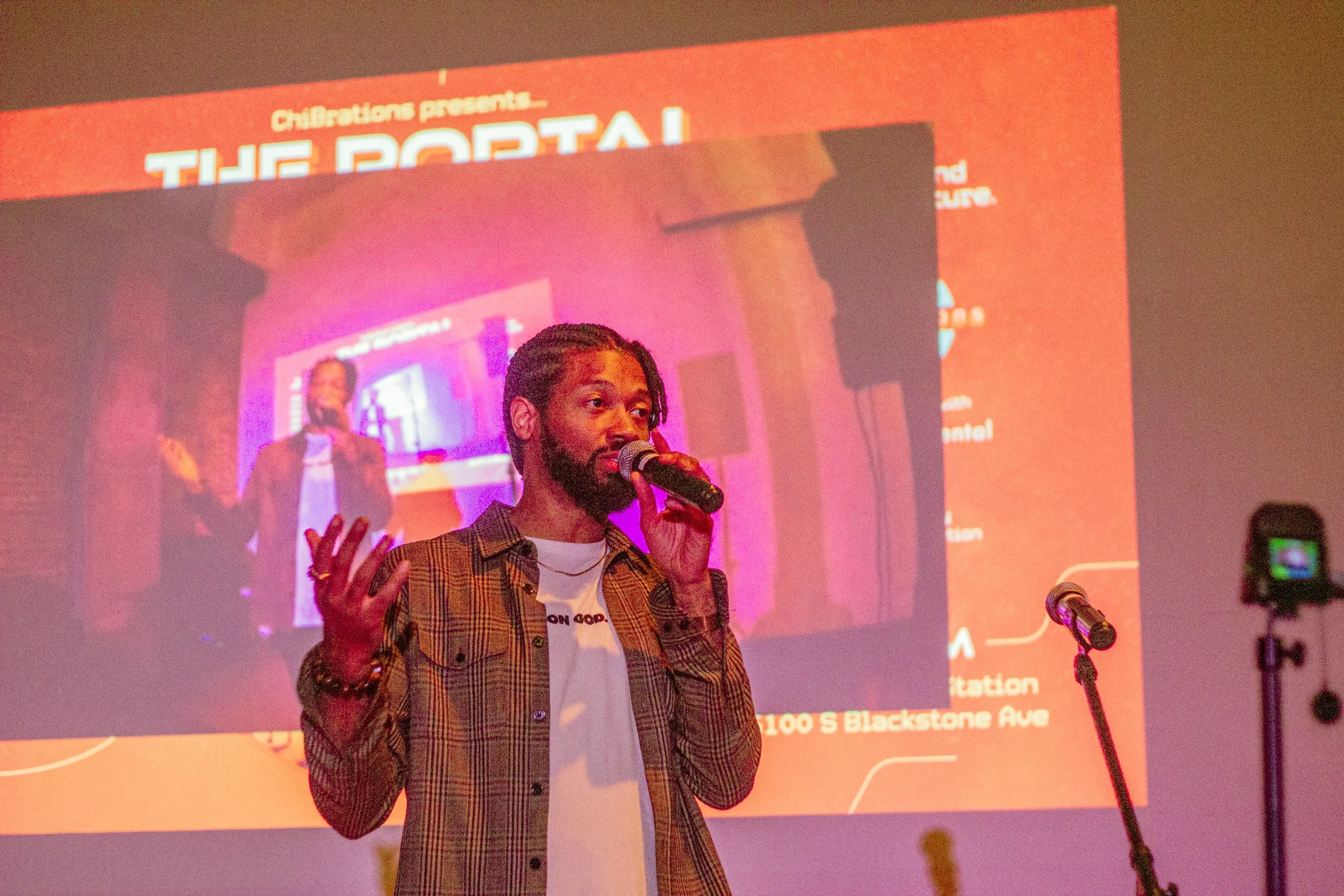
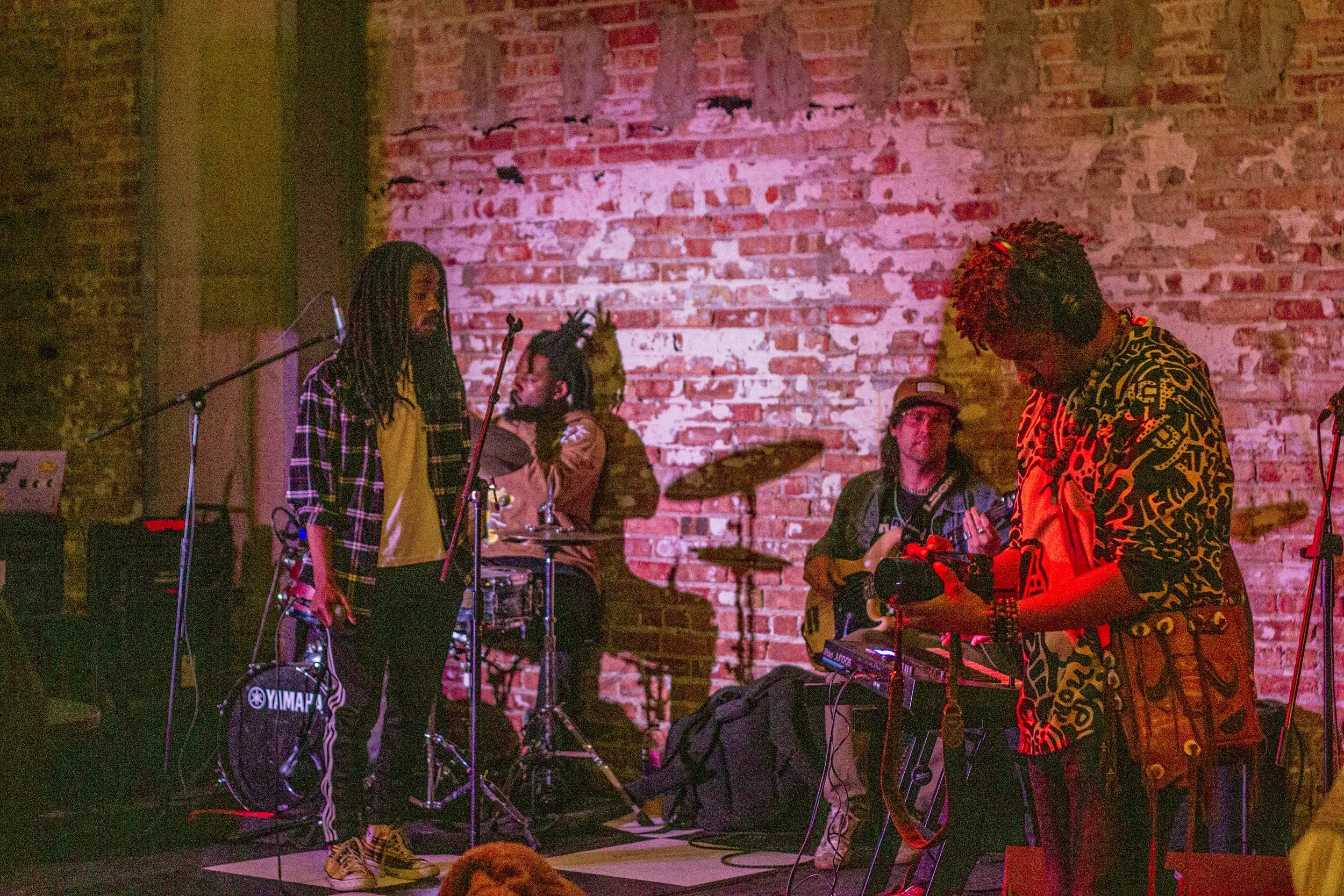
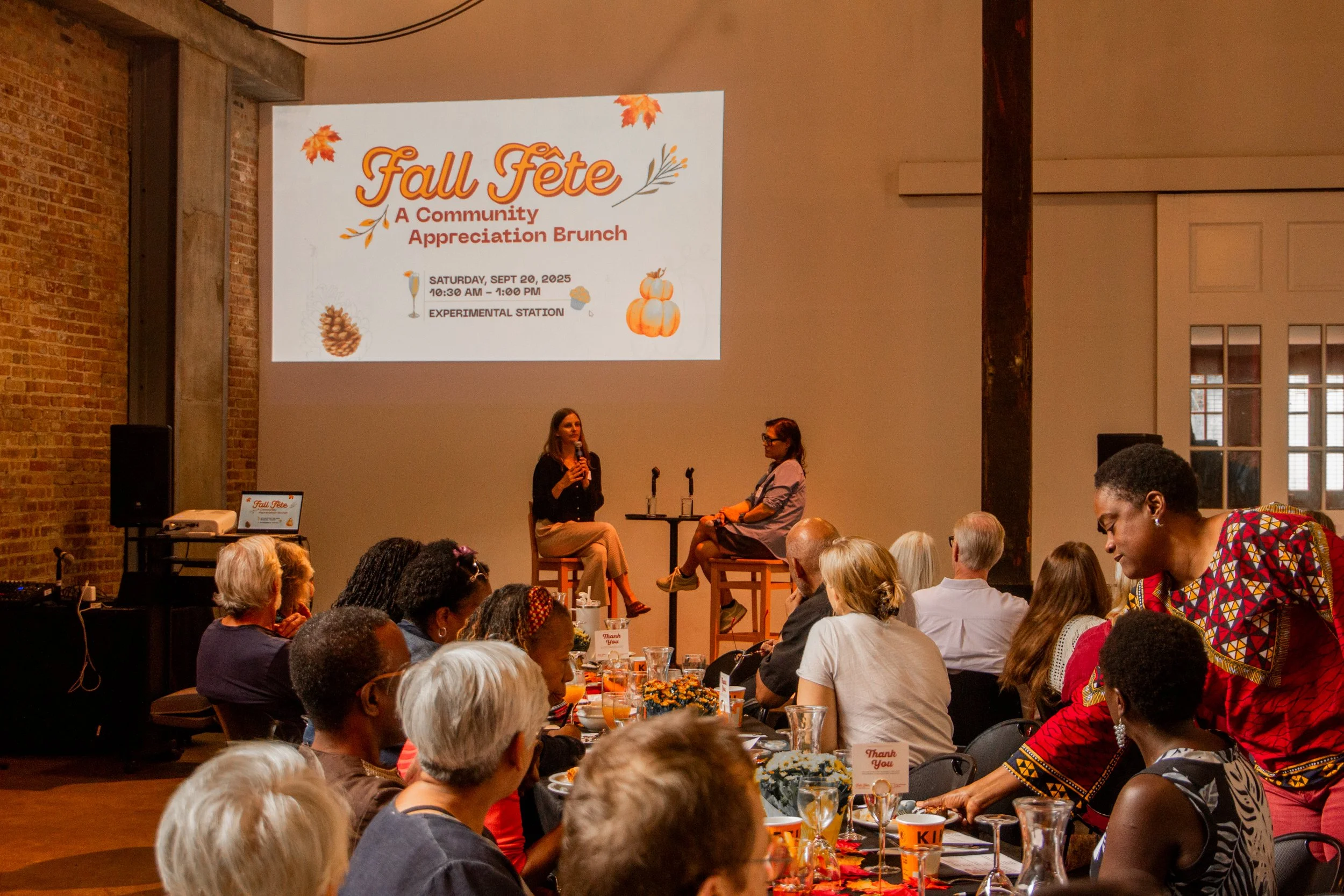
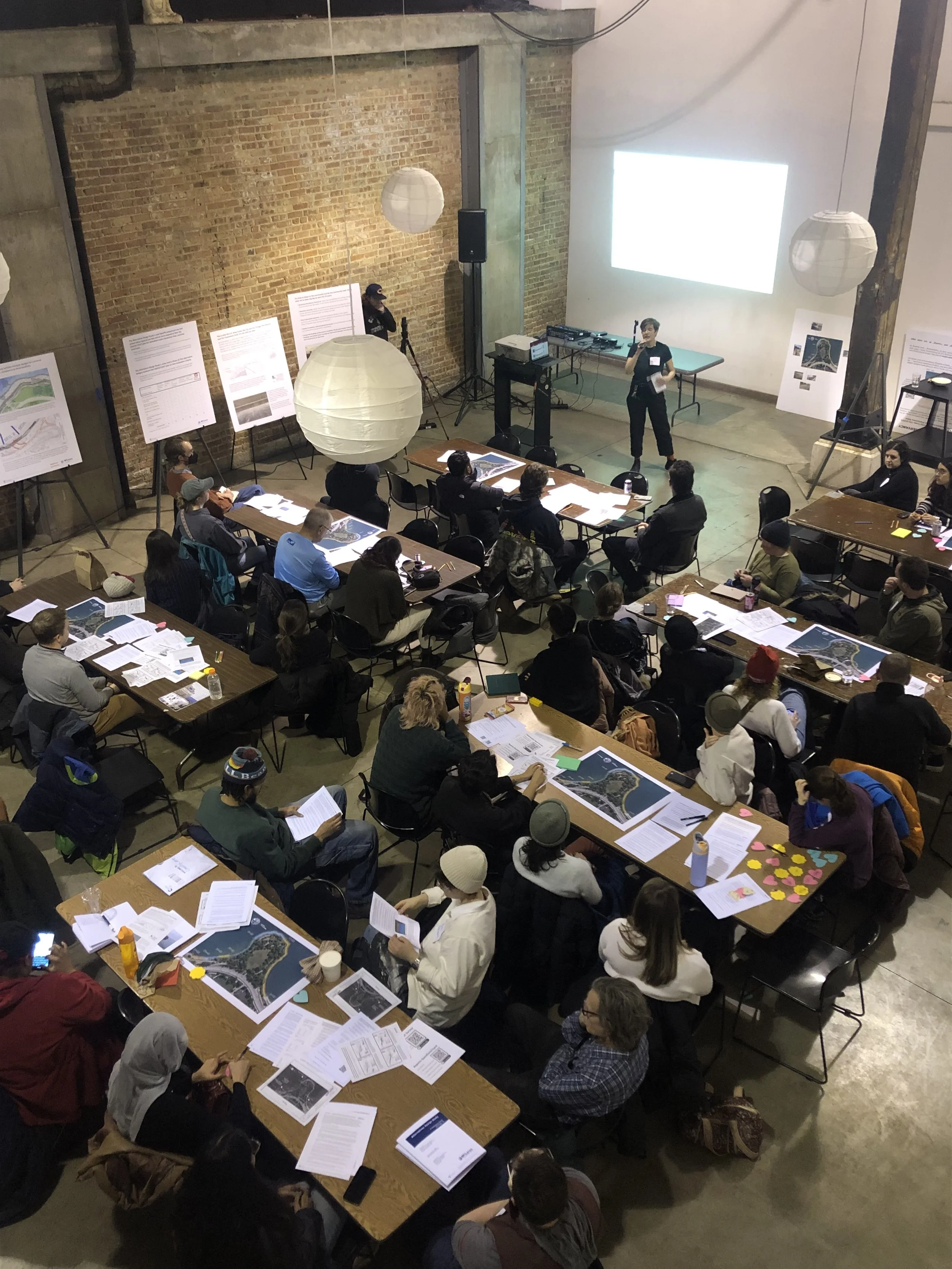
![ETOD-for-All by Elevated Chicago
[equitable-transit-oriented development]](https://images.squarespace-cdn.com/content/v1/62a372a33bd00d46bf071f6d/5e5fd3e0-6234-4278-9dbc-76818feaadc1/IMG_9168.jpg)
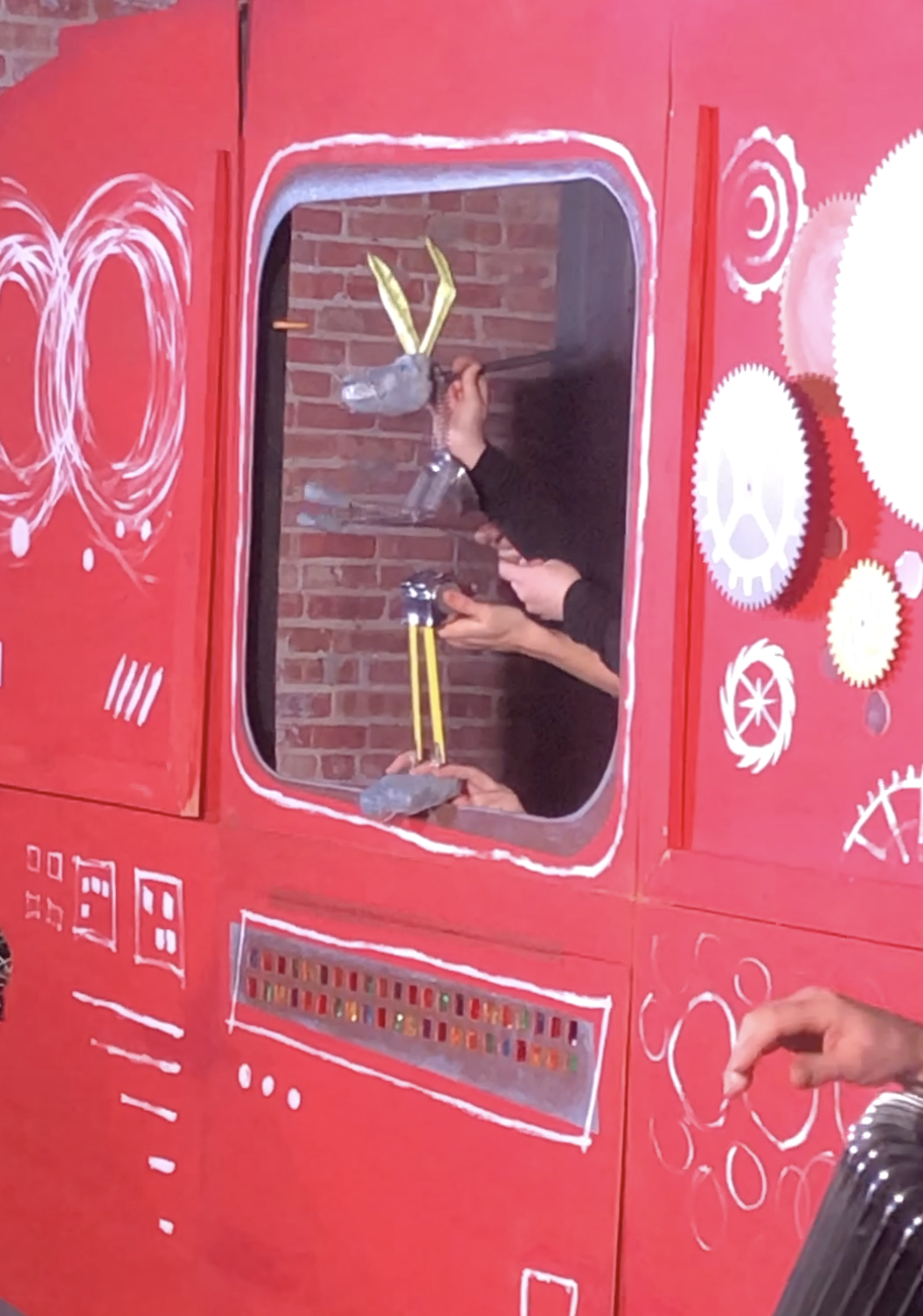
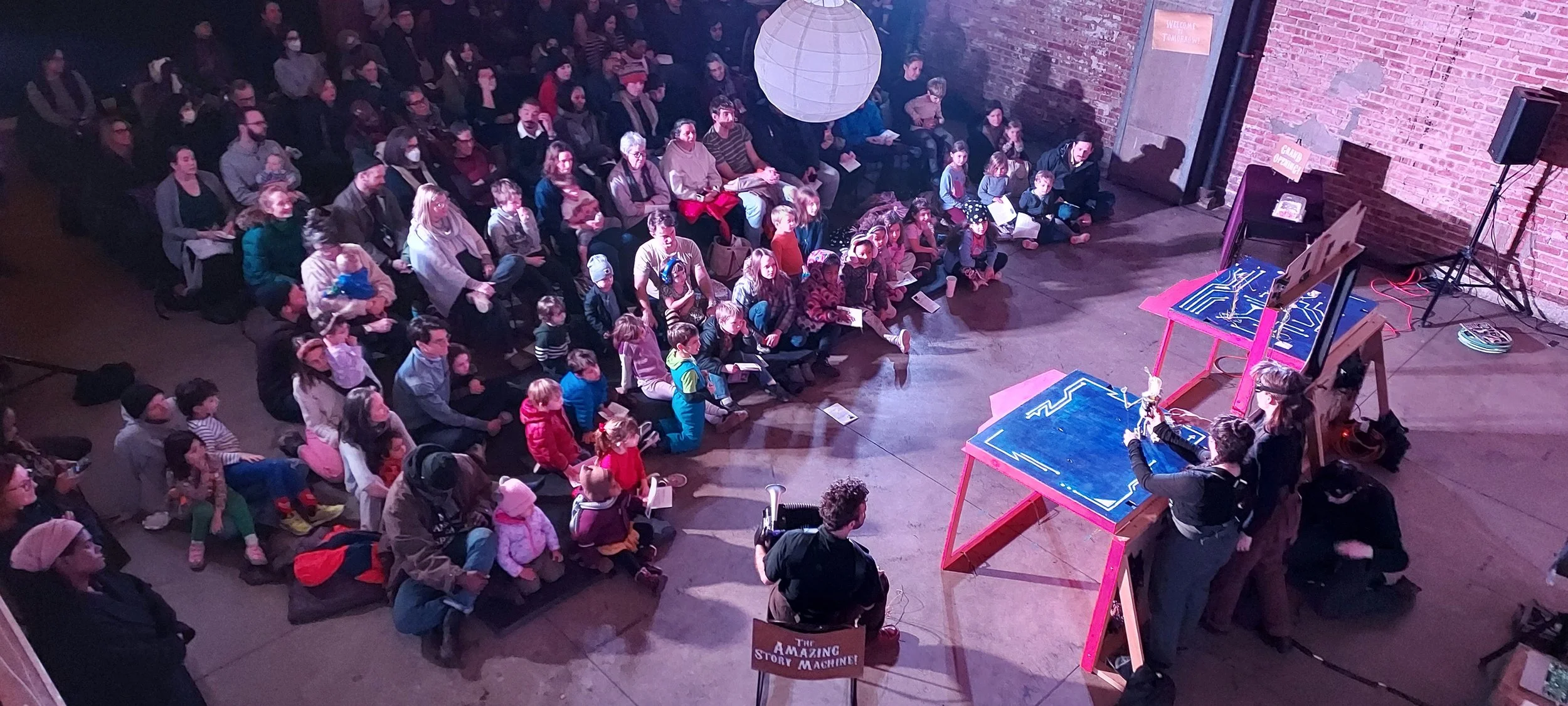
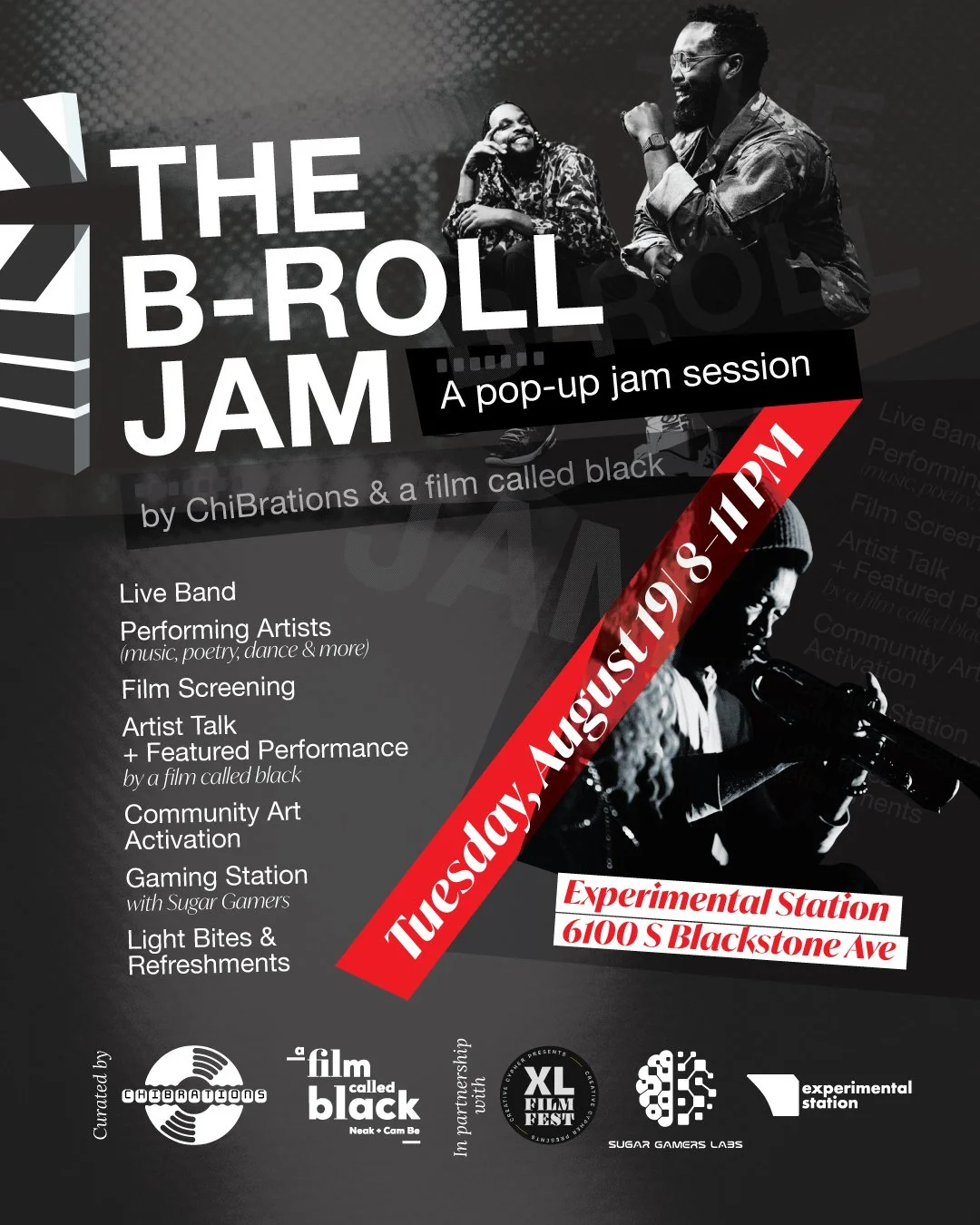

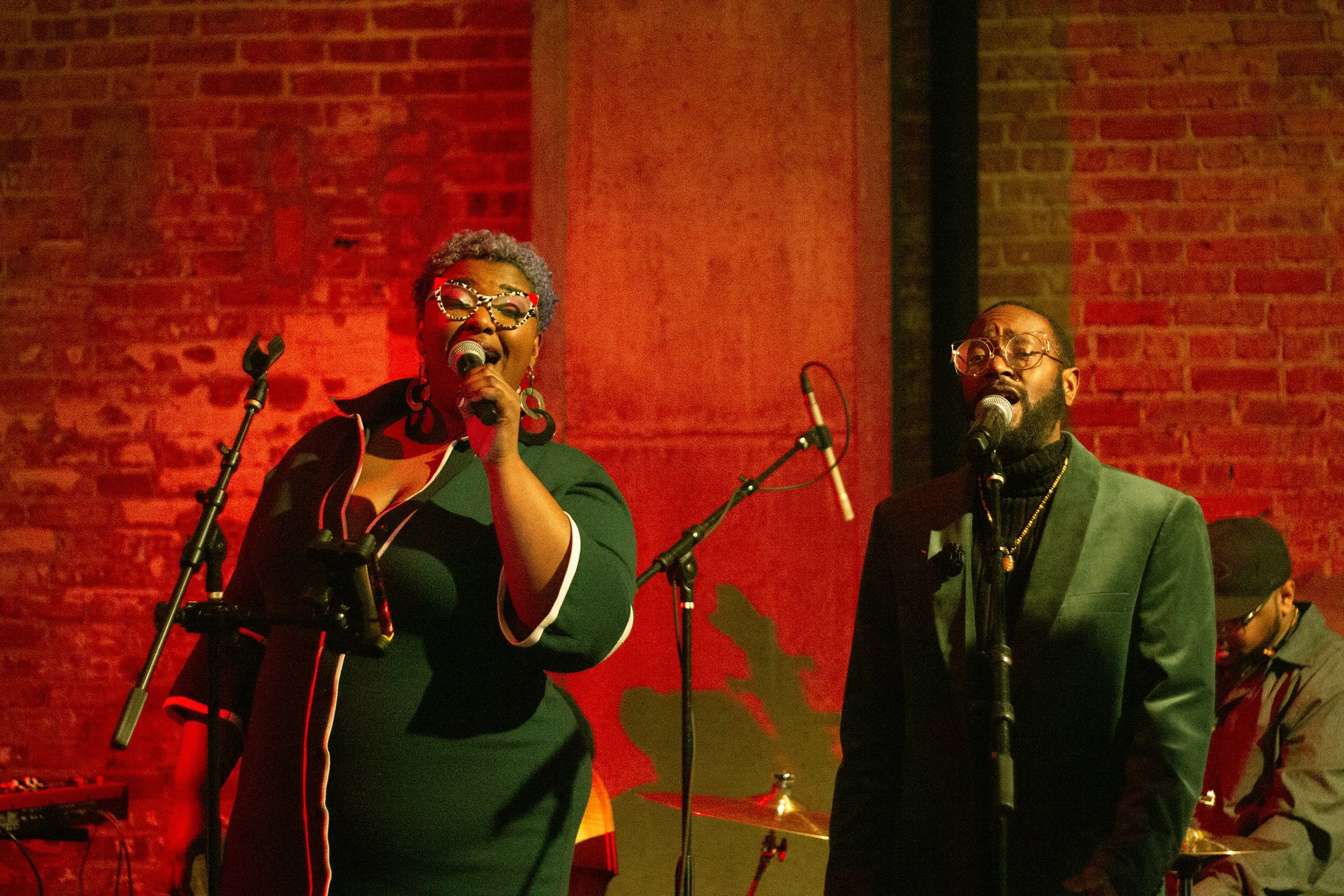
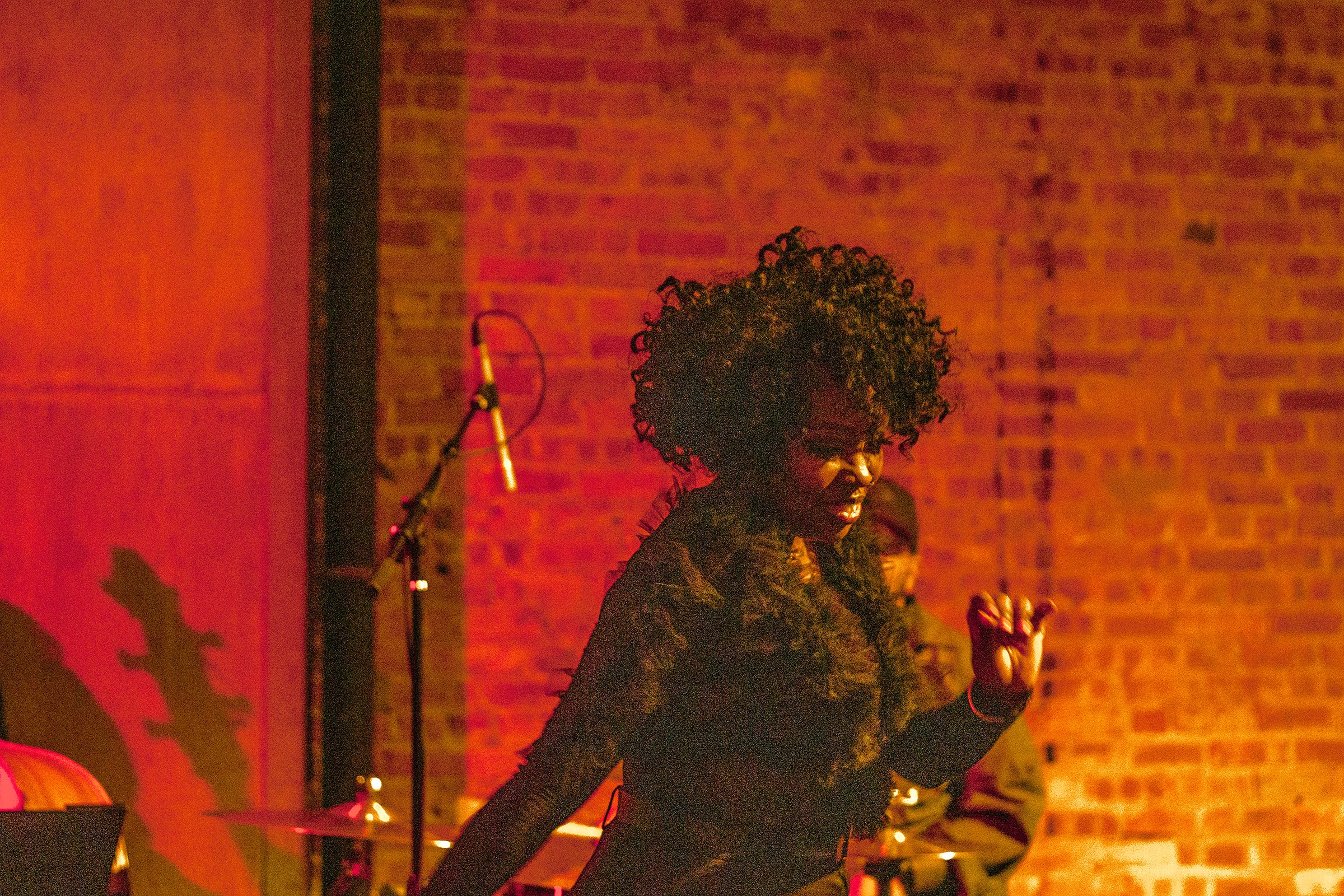
Since 2006, Experimental Station has provided discounted long-term rental space and resources to mission-aligned local businesses and journalism institutions. Current residents are:
Business Incubation Residents
-
Build Coffee & Books
Build Coffee & Books is a South Side café and bookstore cultivating connection through coffee, culture, and community. Build is welcoming new partnerships, art, and stories into its shared space, while working to expand events and catering.
-
Civic Projects Architecture
Civic Projects Architecture was founded with the belief that every person and every community should have access to well designed spaces. Their architectural approach is based in community engagement, collaboration, and transparency. Recent projects include Yollocalli Arts Reach for youth and the Obama Presidential Museum.
-
South Side Weekly
South Side Weekly is a nonprofit newsprint magazine dedicated to supporting cultural and civic engagement on Chicago’s South Side, and to providing educational opportunities for developing journalists, writers, and artists.
-
Invisible Institute
Invisible Institute is a Pulitzer prize winning nonprofit journalism production company on the South Side of Chicago. They work to enhance the capacity of citizens to hold public institutions accountable.
Thank You
for your generous support of Experimental Station!
Your generosity has helped us empower youth on Chicago's South Side, increase fresh food access statewide, and support cultural practitioners and local business incubation.
Please continue to support our efforts.
